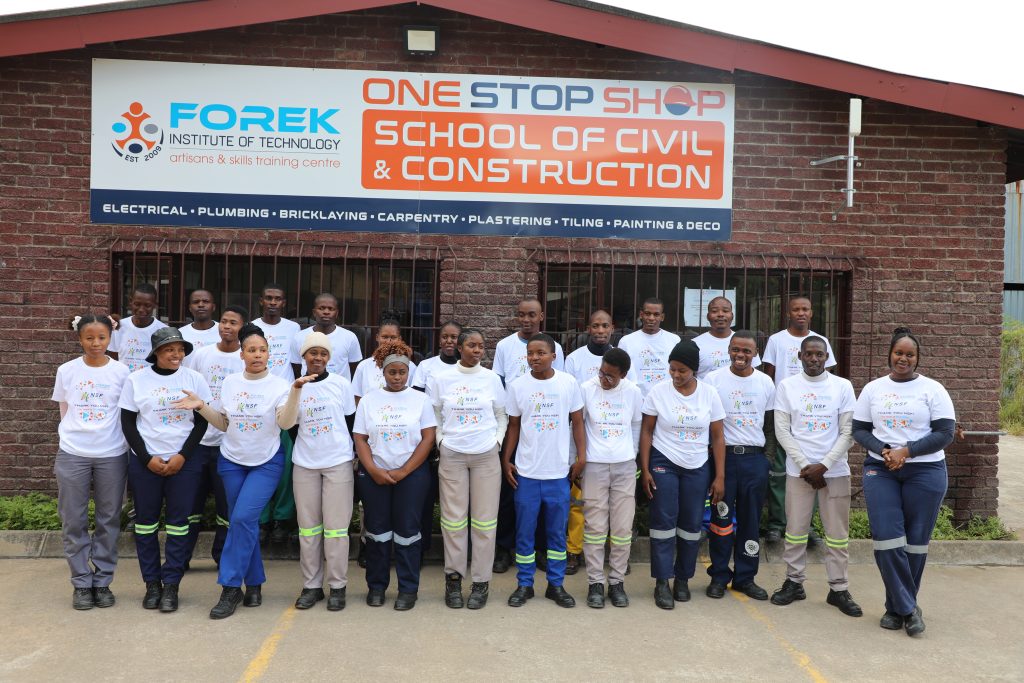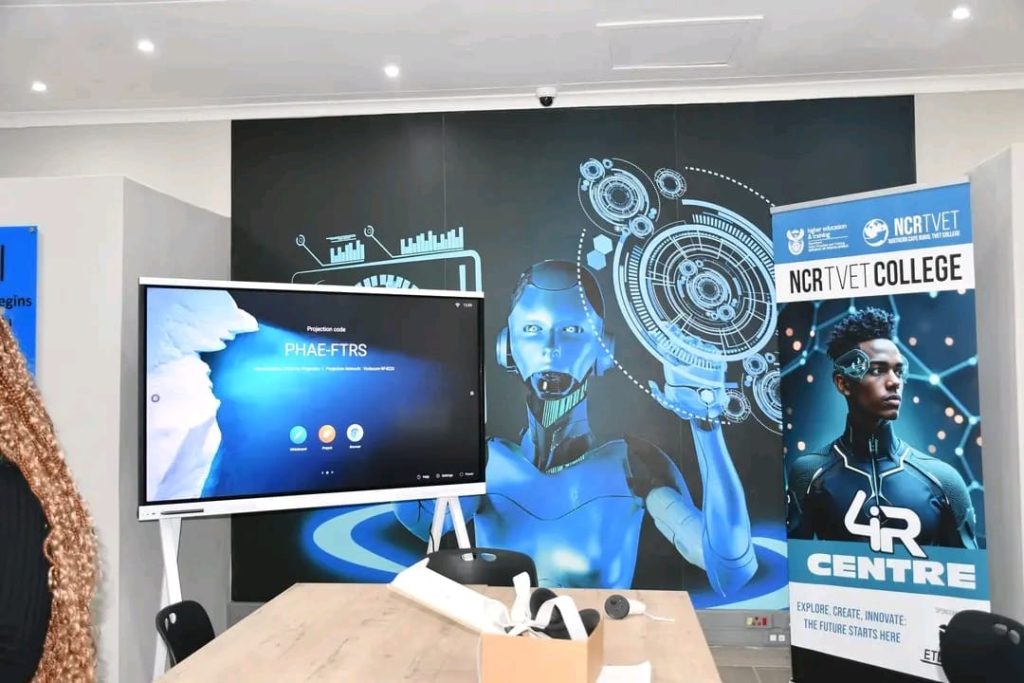By Sivuyisiwe Hombile
On 5 September 2025, Ingwe TVET College in Ntabankulu hosted a historic sod-turning ceremony to launch its Agricultural Campus, a bold step towards transforming the socio-economic landscape of the Alfred Nzo District Municipality (ANDM).
This initiative will activate Ingwe TVET College’s Ntabankulu Agricultural Campus and lay the foundation for industry-standard facilities, including poultry and piggery structures, crop production greenhouses, hydroponics systems, student residences, recreational spaces, agro-processing hubs, and a Small, Medium and Micro-Enterprise (SMME) incubation centre.
Once complete, the campus will become a fully integrated hub for agricultural education, research, and innovation. With a population just shy of 900 000, Alfred Nzo is the smallest district in the Eastern Cape, yet 40.7% of its people remain unemployed. This development is therefore more than an infrastructure project; it is a lifeline of opportunity, aligning directly with the urgent needs of the district’s communities.
The Wholesale and Retail Sector Education and Training Authority (W&RSETA) has invested R80 million towards establishing an Agriculture Retail Hub at Ingwe TVET College, supported by an additional R25 million from DHET to strengthen future phases of development.
This hub will open new pathways for learners and communities through agricultural and retail skills development, training, and employment. It also represents a critical investment in building sustainable skills pipelines, particularly by integrating agriculture with information and communications technology (ICT), ensuring that young people are prepared for a rapidly evolving economy.
Speaking at the ceremony, Mayor Priscilla Sobuthongo emphasised the unique positioning of the district and highlighted the transformative potential of the hemp and cannabis industries. With the right policies, skills training, and infrastructure, these industries could anchor new opportunities in agriculture, manufacturing, SMMEs, tourism, and health innovation. Hemp can empower multiple sectors, from textiles, paper, and building materials to plastics and biofuels. Cannabis, with its medicinal and wellness applications, including oils, edibles, and pharmaceuticals, has the potential to stimulate downstream industries through processing hubs rather than relying solely on raw cultivation. For rural communities and youth not in education, employment, or training (NEET), this presents an unprecedented opportunity to gain agricultural, technical, and entrepreneurial skills through TVET colleges and training centres.
Deputy Minister of Higher Education, Dr. Nomusa Dube-Ncube, reflected on the broader vision of the project: “The White Paper on Post-School Education and Training makes it clear: TVET colleges must become institutions of choice for our young people. This agricultural campus embodies that vision. With cutting-edge facilities, from computer laboratories and engineering workshops to cannabis production and processing facilities, and later, student residences and agro-processing hubs, Ingwe TVET College is being positioned as a leading institution in rural skills development. I urge the people of Ntabankulu and the surrounding areas to take ownership of this institution. Value it, protect it, and use it to uplift yourselves and future generations. Let us ensure that the resources invested here bear fruit for decades to come. As we train young people, farmers, and entrepreneurs, we must instill in them a deep sense of responsibility to give back to the community, creating a cycle of growth, prosperity, and sustainability.”

Deputy Minister Dr. Nomusa Dube-Ncube, DDG Sam Zungu, and Mayor Tsileng Sobuthongo joyfully tour an exhibition at Ingwe TVET College.
The event also showcased the collaboration of Post-School Education and Training (PSET) institutions, as they exhibited and engaged learners. Seven invited high school pupils had the opportunity to ask questions and receive guidance. The Wholesale and Retail Sector Education and Training Authority (W&RSETA), the Agriculture Sector Education and Training Authority (AgriSETA), the Services Sector Education and Training Authority (Services SETA), the Safety and Security Sector Education and Training Authority (SASSETA), the Construction Education and Training Authority (CETA), the Food and Beverages Manufacturing Sector Education and Training Authority (FoodBev SETA), the Manufacturing, Engineering and Related Services Sector Education and Training Authority (MERSETA), and the National Skills Fund (NSF) ensured their availability.
The Deputy Minister further underlined the significance of focusing on medicinal cannabis production. Aligning with global health and wellness trends, this sector offers South Africa the chance to produce medicines locally, reduce dependency on imports, and drive research and innovation. By building capacity in this sector, the country can meet urgent health needs and position itself as a global leader in medicinal cannabis.
This sod-turning ceremony marks not just the beginning of construction, but the beginning of a new era, one where education, skills, and innovation will power rural transformation. It is a promise to the youth of Alfred Nzo District, and indeed to the Eastern Cape, that their future will be built with their own hands, on their own soil, and for their own prosperity.



